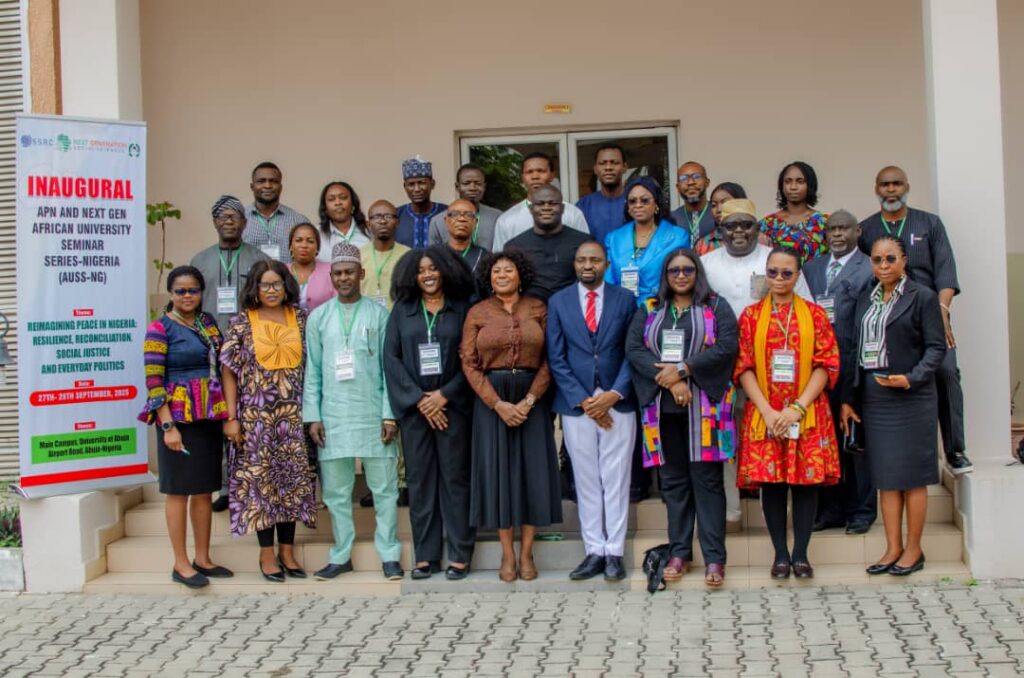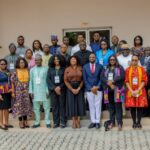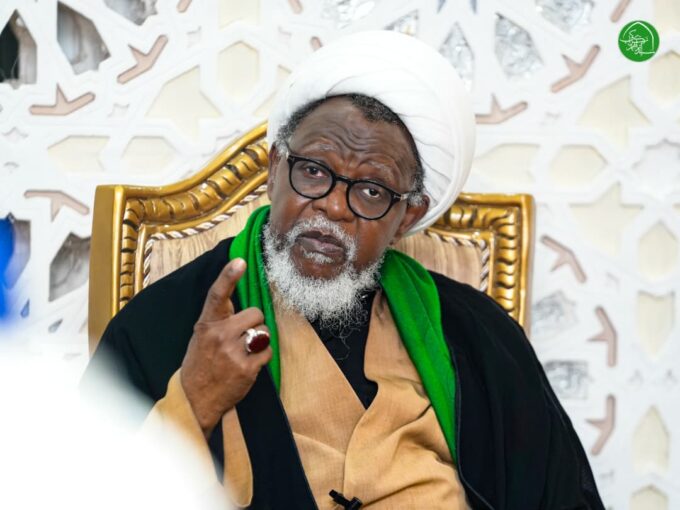A two-day conference on “Reimagining Peace in Nigeria: Resilience, Reconciliation, Social Justice and Everyday Politics” has urged a comprehensive review of existing peace and security practices in Nigeria.
The conference, organized by APN-Next Gen through the African University Seminar Series-Nigeria (AUSS-NG) at the University of Abuja, brought together 26 experts who presented papers and deliberated on the complexities of peacebuilding in Nigeria.
The conference aimed to reimagine peace in Nigeria, focusing on resilience, reconciliation, social justice, and everyday politics. Participants engaged in in-depth discussions on the challenges facing peacebuilding efforts in the country, highlighting the need for innovative approaches to managing violence and conflicts.

Professor Abosode Omowumi Babatunde, a keynote speaker from the University of Ilorin, highlighted the critical role of traditional leaders in building community resilience and effective localized peacebuilding. She emphasized the need for innovative approaches to managing violence and conflicts, considering the “politics of the local.”
According to Professor Babatunde, traditional leaders play a vital role in promoting peace and security in their communities. She noted that localized peacebuilding efforts can be effective in addressing the root causes of conflicts and promoting sustainable peace.
The conference participants identified several challenges facing peacebuilding efforts in Nigeria, including the fragmentation of the security landscape due to the proliferation of state and non-state security actors. This fragmentation has undermined peace and security in the country, creating an environment conducive to violence and conflicts.
The politicization of insecurity was also identified as a major challenge, exacerbating conflicts and creating divisions among communities. Participants emphasized the need for a more nuanced approach to addressing insecurity, one that takes into account the complex dynamics of conflicts in Nigeria.
Furthermore, the legacy of historical injustices was recognized as a significant challenge facing peacebuilding efforts in Nigeria. Participants noted that these injustices have sustained local resistance and created deep-rooted grievances that may not be resolvable due to institutional failure.
The conference participants also highlighted the challenges posed by borders and transnational security to vulnerable groups. They noted that these challenges have heightened precarity for such groups, creating an environment conducive to violence and exploitation.
To address these challenges, the participants resolved that existing peace and security practices should be reviewed, and alternative approaches should be sought. They emphasized the need for innovative approaches to managing violence and conflicts, ones that take into account the complex dynamics of conflicts in Nigeria.
The participants also called for deliberate efforts to strengthen long-term multilateral social collaboration in peacebuilding. They noted that such collaboration is essential for promoting peace and security in Nigeria, and for addressing the root causes of conflicts.
In addition, the participants resolved that security reform should be reviewed to address fragmentation. They emphasized the need for a more coordinated approach to security, one that takes into account the complex dynamics of conflicts in Nigeria.
The conference emphasized the importance of promoting reconciliation and successful peacebuilding, and the need for innovative approaches to managing violence and conflicts. A representative of the APN-Next Gen Programme Director, Professor Cyril Obi, expressed commitment to promoting peace and security in Nigeria through innovative approaches and collaboration.















Leave a comment